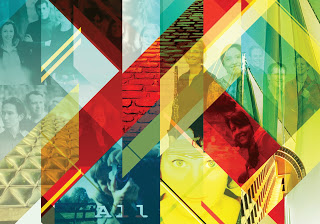Curatorial Statement – Terminal City Soundscape
January 21, 2011
 By David Pay, Artistic Director, Music on Main
By David Pay, Artistic Director, Music on Main
Listening to our city
What are the sounds, the sights, the tastes and smells that make Vancouver Vancouver? As the city enters its 125th year, I’ve been reflecting especially on the music that makes Vancouver tick.
Terminal City Soundscape doesn’t set out to be a comprehensive review of the city’s musical history. Rather, it’s a personal reflection on four aesthetic streams that I believe define Vancouver’s music scene: soundscape; interculturality; free improv; and the idea of beauty, all reflected through sound. It’s also about how our leading composers, performers and musical thinkers show us that the local is universal.
Soundscape is about an immersive experience in the acoustic ecology. The term was coined by R. Murray Schafer and began here in Vancouver in the 1970’s. Tonight we’ll hear two of the most important compositions that emerged from this movement: Hildegard Westerkamp’s Kits Beach Soundwalk and Barry Truax’s Riverrun. In between sets, you’ll also hear excerpts from The Vancouver Soundscape Project (1973/1996) and more recent sounds collected by Vincent Andrisani and Nathan Clarkson.
Intercultural music integrates musical philosophies, techniques and instruments from different cultures. With 125 years of multicultural immigration in Vancouver, our city has become a hotbed of intercultural music, with ensembles like the Vancouver Inter-Cultural Orchestra, Red Chamber, Orchid Ensemble and Birds of Paradox. Zheng player Mei Han and composer Randy Raine-Ruesch are two of our city’s leaders in this area.
Vancouver is known around the world as a major centre for free improvisation, and cellist Peggy Lee’s performances are the exemplar of how improv can work. What’s free improv for musicians like Peggy? It’s a kind of music making that that engages spontaneity to unlock individual agency and break down hegemonic political and cultural systems.
When we look at the natural beauty of Vancouver, it’s hard not to imagine that being reflected in our arts. Many composers here, including Rodney Sharman and Jocelyn Morlock create music that – to me – deals with the idea of beauty in an almost Keatsian way. Through harmony, melody and even rhythm, these composers write music that is not about being merely pretty, but rather is about ideas and sounds that seize the imagination as beauty and show us a kind of truth. The honesty of musica intima and Ariel Barnes’ performances speak to this kind truth.
Reflecting on what is true to each of us, we often look internally, to our personal experiences. In Hildegard Westerkamp’s “Kits Beach Soundwalk,” the composer invites us to listen to the city and then shows the intimate voices of nature, the body, dreams and imagination. In the interdisciplinary collaboration “All,” Mina Shum, Standing Wave, and six composers reflect on the personal and the local to show us that the microcosm is the macrocosm.
So much art in Vancouver takes this stance of framing a specifically local experience as universal. Perhaps it’s the geographic distance we have from other cities, or perhaps it’s because we’re surrounded by water and mountains that keeps us looking and listening to ourselves. But when we do listen locally, we discover a wide wide world that opens up our ears, our hearts, and our minds, to ourselves, and to each other.